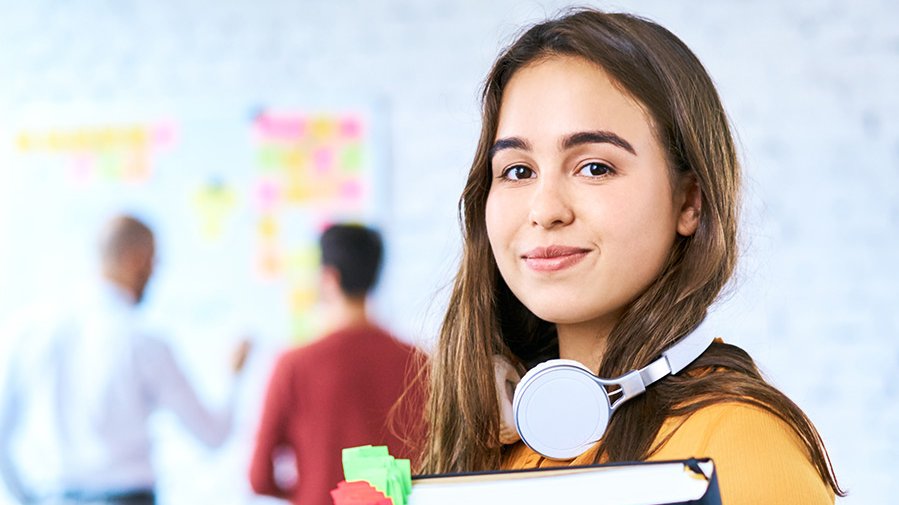New course format
More Innovation and Interdisciplinarity with Plug-in Modules

In this way, students can develop specific competencies and acquire knowledge beyond their regular modules, deal with issues and approaches from disciplines outside their field of study, and work on interdisciplinary projects together with fellow students from other subjects.
Start-ups, Real World Challenges, Linear Algebra
The first offers are available from the Chair for Strategy and Organization with the plug-in module “What's Cooking? Founding Start-ups and Unicorns in Real Time in One Semester”, from the Chair of Corporate Management with “Behavioral Economics Meet Real World Challenges. A Project Rally” and from the Chair for Data Processing with the block course “Learning from Data and Linear Algebra”.
Digital Sustainability Transformation
The Chair of Policy Analysis is also involved from the beginning with a project on “Digitainability”. This is perhaps the best term to describe the new teaching-research project. Titled “Digital Sustainability Transformation of, by and for the TUM”, it aims to bring together two megatrends of our time – digitization and sustainability – and make them fruitful for the transformation of our university and our society.
In a two-semester hybrid module open to all TUM master's students, consisting of a lecture and a seminar totaling 12 ECTS, participants discuss how digitization and sustainability can interact. Their goal is to uncover potential for action for TUM, the city of Munich, but also for other actors and levels.
The first part of the lecture will start in April. In addition to basic introductions to the topic, the focus will be on aspects such as economy for the common good and circular economy, diversity and (mental) health, or energy efficiency and urban ecosystems.
Virtual student conference
In the seminar, participants are then asked to implement their very own ideas for a sustainable and digital TUM in projects. For example, they can address elements in TUM's sustainability assessment and work on solutions at the various TUM locations, or implement projects for digital sustainability transformation together with partners from business and society in accordance with the idea of service learning. The project team, consisting of Prof. Dr. Stefan Wurster, Dr. Markus B. Siewert, Lea Buchholz, Linda Rüthers and Sophia Schmid, provides active support to the students at all stages.
Starting in October, the second, digital part of the lecture will be devoted to the question of how TUM, as a social driver of innovation and transformation, is actively helping to shape sustainable digitization and digital sustainability in society, business and politics. The project ends with a virtual student conference where the results of the projects are presented to the interested public inside and outside TUM.
Numerous other offerings will continuously supplement the selection of plug-in modules.
More information:
TUM Plug-in Modules